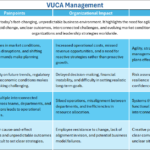Effectiveness of coaching vs a leadership development program

Executive Summary
Organizations typically allocate between 1% and 5% of their annual revenue to leadership development programs. This can vary from $2,500 per employee annually in smaller organizations (<100 employees) to $20,000 per employee annually in larger corporations (>1000 employees)
Despite substantial investments in leadership development, challenges persist in achieving desired outcomes. A McKinsey & Company report highlights that only 11% of executives believe their leadership development interventions yield and sustain the intended results. Another study found that participants in leadership training exhibited a 25% increase in learning and a 20% improvement in job performance. Organizational benefits of implementing comprehensive leadership development reported up-to 25% increase in organizational outcomes.
Current expert perspectives suggest that leadership development programs can be effective when they are strategically aligned with organizational priorities, incorporate active participation from top management, and include rigorous evaluation mechanisms to monitor and enhance their impact.
Leadership coaching has been shown to significantly improve leaders’ authentic and change-oriented behaviors, thereby enhancing overall leadership effectiveness.
Meta-analyses reveal that workplace coaching positively affects individual-level outcomes, including performance, well-being, coping, work attitudes, and goal-directed self-regulation. These improvements contribute to enhanced organizational performance.
Key benefits reported on (executive) leadership coaching:
- High Satisfaction Rates: Approximately 96% of organizations that engaged in executive coaching indicated they would repeat the process. Learning with Biz
- Return on Investment (ROI): Companies reported an average ROI of nearly six times the cost of executive coaching. Learning with Biz
- Behavioral Changes: Executive coaching has been shown to lead to significant positive changes in personal characteristics, behaviors, and attitudes. Edgecumbe
Cost of leadership development – per employee
In today’s rapidly evolving business landscape, how can organizations ensure that their substantial investments in leadership development and executive coaching translate into tangible improvements in performance and innovation?
Organizations typically allocate between 1% and 5% of their annual revenue to leadership development programs. For instance, a company with $5 million in annual revenue might invest between $50,000 and $250,000 each year in such initiatives.
According to a survey by PricewaterhouseCoopers (PwC), the average company spends around 2.5% of its annual payroll on leadership development. This translates to around $5,000 to $10,000 per year per employee. However, this number can vary widely depending on the size, industry, and type of organization. If you’re interested in some more detail, check this article.
Spending per employee varies significantly based on company size:
- Small companies (1–99 employees): Approximately $2,500 per employee annually.
- Medium companies (100–499 employees): Around $5,000 per employee annually.
- Large companies (500–999 employees): Up to $10,000 per employee annually.
- Very large companies (>1000 employees): Up to $20,000 per employee annually.
How effective are Leadership Development Programs?
Contemporary experts emphasize that the effectiveness of leadership development programs hinges on their alignment with organizational objectives and the implementation of robust evaluation methods. A meta-analysis by Lacerenza et al. (2017) indicates that well-designed leadership training can significantly enhance learning outcomes, behavioral skills, and overall organizational performance. However, the success of these programs is contingent upon factors such as the relevance of content to specific organizational contexts and the active involvement of senior leadership.
The Center for Creative Leadership underscores the importance of measuring the impact of leadership development initiatives, advocating for the use of comprehensive evaluation frameworks that assess changes at individual, team, and organizational levels. This approach ensures that programs are not only effectively enhancing leadership capabilities but also contributing to broader business goals.
Despite substantial investments in leadership development, challenges persist in achieving desired outcomes. A McKinsey & Company report highlights that only 11% of executives believe their leadership development interventions yield and sustain the intended results. This underscores the necessity for programs to be meticulously tailored to address specific organizational needs and to foster critical leadership behaviors that drive success.
In summary, current expert perspectives suggest that leadership development programs can be effective when they are strategically aligned with organizational priorities, incorporate active participation from top management, and include rigorous evaluation mechanisms to monitor and enhance their impact.
Sources:
- Harvard: What Makes Leadership Development Programs Succeed?
- Cambridge Business School: Maximizing the Impact and ROI of Leadership Development: A Framework
- Harvard: Leadership Perspective: What Makes Leadership Development Impactful?
- LeadershipChoice: How to Effectively Measure the Impact of Leadership Development Programs
Leadership Coaching effectiveness
Contemporary expert analyses provide valuable insights into the effectiveness of leadership coaching:
1. Enhancing Leadership Effectiveness
Leadership coaching has been shown to significantly improve leaders’ authentic and change-oriented behaviors, thereby enhancing overall leadership effectiveness. A study published in PLOS ONE indicates that coaching positively influences these behaviors, leading to more effective leadership outcomes.
2. Positive Impact on Individual and Organizational Performance
Meta-analyses reveal that workplace coaching positively affects individual-level outcomes, including performance, well-being, coping, work attitudes, and goal-directed self-regulation. These improvements contribute to enhanced organizational performance.
3. Return on Investment (ROI) in Executive Coaching
Measuring the ROI of executive coaching involves assessing both qualitative and quantitative outcomes. Effective leaders understand the importance of feedback and active listening, which are integral to the coaching process.
4. Principles of Effective Leadership Coaching
The Center for Creative Leadership outlines six principles for effective leadership coaching:
- Commit to the Relationship: Building trust and commitment between coach and leader.
- Leverage Assessment and Feedback: Utilizing assessments to provide actionable feedback.
- Focus on the Whole Person: Addressing both personal and professional development.
- Foster Self-Awareness: Encouraging leaders to reflect on their behaviors and impact.
- Promote Sustainable Learning and Change: Ensuring that coaching leads to lasting development.
- Measure Coaching Impact: Evaluating the effectiveness of coaching interventions.
By adhering to these principles, leadership coaching can effectively develop leaders’ capabilities, leading to improved individual and organizational outcomes.
Sources:
- Halliwell, P. R., Mitchell, R. J., & Boyle, B. (2023). Leadership effectiveness through coaching: Authentic and change-oriented leadership. PLOS ONE. PLOS Journals
- Jones, R. J., Woods, S. A., & Guillaume, Y. R. F. (2016). The effectiveness of workplace coaching: A meta-analysis of learning and performance outcomes from coaching. Journal of Occupational and Organizational Psychology. Emerald
- Forbes Coaches Council. (2023). The ROI of Executive Coaching: A Comprehensive Guide. Forbes. Forbes
- Center for Creative Leadership. (2023). The 6 Principles of Effective Coaching for Leaders. CCL
Comparing corporate leadership development programs with (executive) leadership coaching
When evaluating the effectiveness of corporate leadership development programs versus executive leadership coaching, it’s essential to consider their distinct approaches and measurable outcomes.
Corporate Leadership Development Programs
These programs are designed to enhance leadership skills across an organization, often through workshops, seminars, and structured training sessions.
- Broad Impact: A study found that participants in leadership training exhibited a 25% increase in learning and a 20% improvement in job performance. Research
- Organizational Benefits: Companies implementing comprehensive leadership development reported a 25% increase in organizational outcomes. Research
- Challenges: Despite significant investments, 71% of businesses feel their leaders lack the necessary abilities to propel them into the future. Teamstage
Executive Leadership Coaching
This personalized approach focuses on one-on-one interactions to address specific leadership challenges and goals.
- High Satisfaction Rates: Approximately 96% of organizations that engaged in executive coaching indicated they would repeat the process. Learning with Biz
- Return on Investment (ROI): Companies reported an average ROI of nearly six times the cost of executive coaching. Learning with Biz
- Behavioral Changes: Executive coaching has been shown to lead to significant positive changes in personal characteristics, behaviors, and attitudes. Edgecumbe
Comparative Insights
- Customization vs. Standardization: Executive coaching offers tailored development, addressing individual needs, whereas corporate programs provide standardized training to a broader audience.
- Scalability: Corporate programs can reach more employees simultaneously, promoting a unified leadership culture. In contrast, executive coaching focuses on individual leaders, which may limit immediate widespread impact.
- Cost Considerations: While executive coaching often requires a higher initial investment per individual, the substantial ROI reported suggests it can be a cost-effective strategy for developing high-potential leaders.
Reliable Sources
Here is a list of sources referenced in the comparison of corporate leadership development programs and executive leadership coaching:
- Research.com: Statistics on learning and job performance improvements from leadership training.
- TeamStage.io: Insights on leadership skills gaps and the perceived effectiveness of corporate training.
- Learningwithbiz.com: Data on the ROI and satisfaction rates of executive leadership coaching.
- Edgecumbe.co.uk: Evidence of behavioral changes and leadership effectiveness through executive coaching.
- Harvard Business Publishing Corporate Learning: Analysis of leadership program effectiveness and alignment with business goals.
- Harvard Business Review: Research on measuring the ROI of leadership initiatives.
- BusinessLeadershipToday.com: Insights into the functionality and scalability of leadership development programs.
- Research from Edgecumbe: Detailed studies on the psychological and behavioral impacts of executive coaching.
These sources provide reliable data and insights into the effectiveness of leadership development and coaching strategies.
Conclusion
In conclusion, both corporate leadership development programs and executive leadership coaching play vital roles in cultivating effective leadership. Organizations may benefit from integrating both approaches to address diverse leadership development needs, leveraging the broad reach of structured programs alongside the personalized depth of executive coaching.
- Participants in leadership training exhibited a 25% increase in learning and a 20% improvement in job performance.
- Companies implementing comprehensive leadership development reported a 25% increase in organizational outcomes.
- Despite significant investments, 71% of businesses feel their leaders lack the necessary abilities to propel them into the future.
- While executive coaching often requires a higher initial investment per individual, the substantial ROI reported suggests it can be a cost-effective strategy for developing high-potential leaders.
- Investing in corporate leadership development programs yields a substantial return. Studies indicate that for every dollar spent, organizations realize an average return on investment (ROI) of $7.
- PR Newswire This ROI stems from increased revenue, improved sales, enhanced employee retention, and reduced recruiting costs. Additionally, companies with robust leadership development initiatives are 1.5 times more likely to rank among the top financial performers in their industry.
The effectiveness of leadership development programs as well as leadership coaching, depends heavily on the design features applied, such as:
- Alignment with Organizational Strategy
- Tailored and Personalized Learning
- Experiential and Action-Based Learning
- Focus on Soft Skills and Emotional Intelligence
- Measurable Outcomes and Continuous Improvement
- Digital Integration
Combining the development program and coaching approach, combines group (1:many) learning and the highly effective individual learning (1:1). Where programs have a lower cost per employee, coaching has a significant higher ROI.
 In my 35+ years of experience I have developed many leadership development programs, spanning >50 countries and >500 managers per program. The set-up of an global academy for TNT Express proved to be extremely effective with benefits ranging from 5-35M euros per year, against a cost of <1M a year.
In my 35+ years of experience I have developed many leadership development programs, spanning >50 countries and >500 managers per program. The set-up of an global academy for TNT Express proved to be extremely effective with benefits ranging from 5-35M euros per year, against a cost of <1M a year.
My 20+ years of coaching experience, combined with my completed Co-Active Coaching provides me with the ability to chose between the best of both worlds depending on your requirements, or to combine this to provide a balanced program and coaching program for your organization.
If your interested, lets have a chat about this and see if we can find a match/fit.
You can book an appointment here, my agenda is always up-to-date 3 months in advance.




